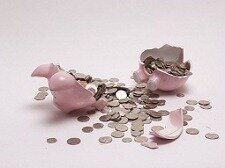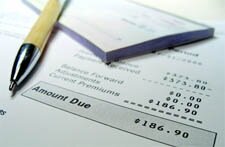Going green doesn’t have to be more expensive
 There is a perception that being environmentally responsible costs more money, and that most people will naturally choose less expensive options over “green” alternatives. But such a perception is misleading. If costs of a product are truly taken into account, the green option is nearly always the economic option.
There is a perception that being environmentally responsible costs more money, and that most people will naturally choose less expensive options over “green” alternatives. But such a perception is misleading. If costs of a product are truly taken into account, the green option is nearly always the economic option.
Recent articles report the unsurprising results that people make choices based on economic impacts, not necessarily on environmental ones. The New York Times featured an article describing the “fickleness” of consumers for green products. And in a study on the outlook for green vehicles, such as hybrids and EVs, JD Powers and Associates note that for most consumers “cost matters more than the environment.”
The reason that some green products are more expensive is that pricing mechanisms do not accurately reflect the true cost of the product. For example, organic farmers need to charge more for their produce compared to industrial farms. But industrial farms require huge nitrogen inputs. Chris Goodall shows that that the pollution cost of nitrogen is three times the value of the crop yield. So how does industrial farming get away with such an uneconomical activity? According to Goodall,
The gains are private (accruing to bankers and to farmers) while the losses are socialised (accruing to taxpayers and citizens). Put another way, the application of fertiliser onto farmlands is far too cheap because its price does not recognise the full costs of using it.
Related articles
-
Will William & Kate’s wedding be a royally green affair?
But even with such problems with pricing, there are many examples where being green does saves money. Lynn Jurich, president and co-founder of SunRun, coined the term “pocketbook environmentalism” to describe the trend of making choices that are both good for the environment and good economics, such as car sharing or energy efficiency. Here at Tainted Green, we’ve shown ways how being green can save green, including 27 ways to lower your utility bills.
If it’s a choice between saving money and saving the environment, the environment will lose. But when prices truly reflected the costs of products and services, being environmental and being economical is the same decision.
Advertisement
Follow us


Comments
that's so true, going green will actually save you money for the most part, especially when you get such products as a wool dryer ball or a reusable lunch bag...
This is so true. I really agree with this. It such a great post. Thanks for posting
I agree with this article but it makes me sad. I think people fail to realize that the costs of these environmentally friendly things really will pay off in the long run. Take the energy efficient light bulbs that are out now. Yes, they might cost you $6 for one bulb but it will last you 10 to 20 years when in that same amount of time you are going to replace your 75 cent lightbulb like 15 times. People just don't take the time to figure that out.
I just stumbled upon your blog and wished to say that I have truly enjoyed surfing around your blog posts. In any case I will be subscribing to your feed and I hope you write again soon!